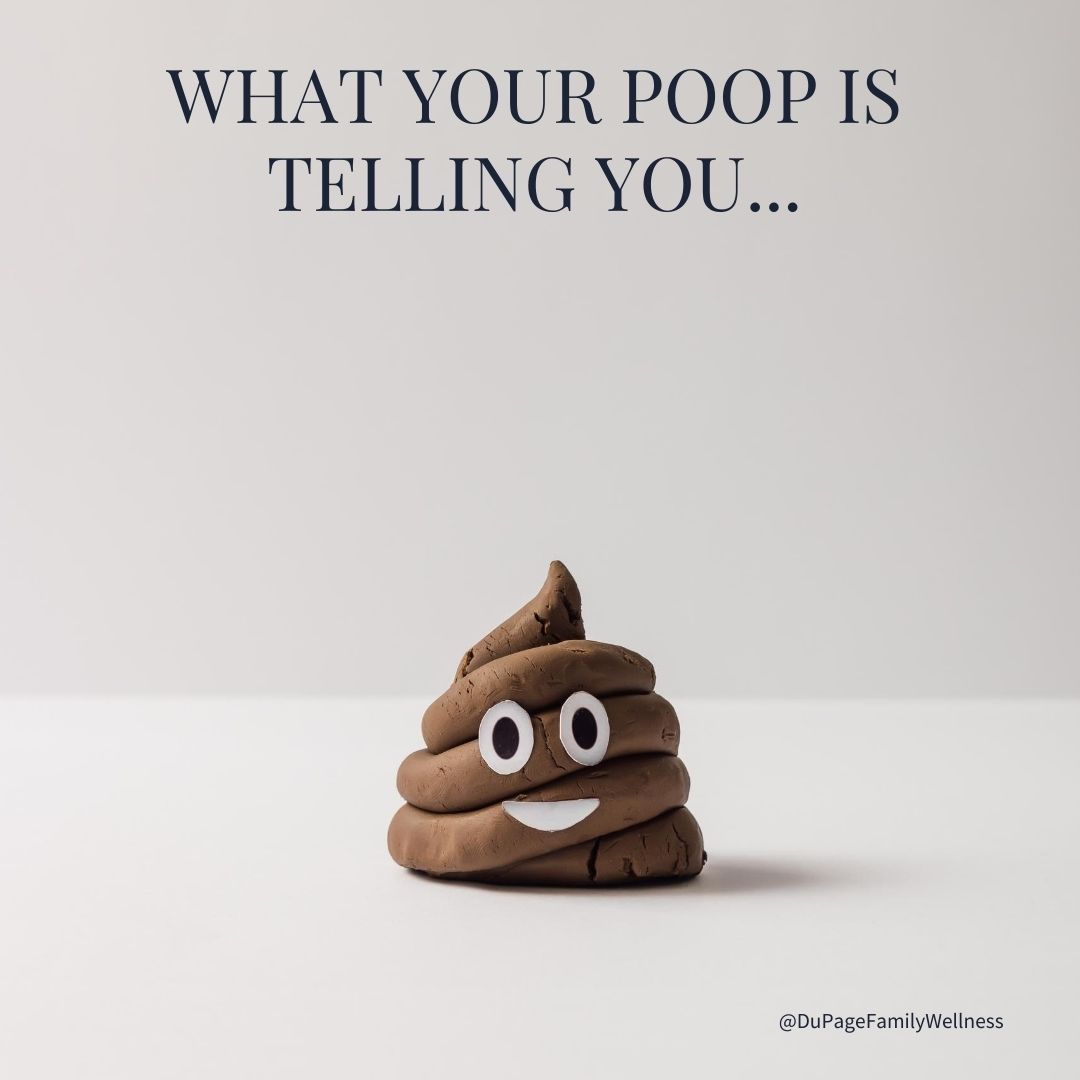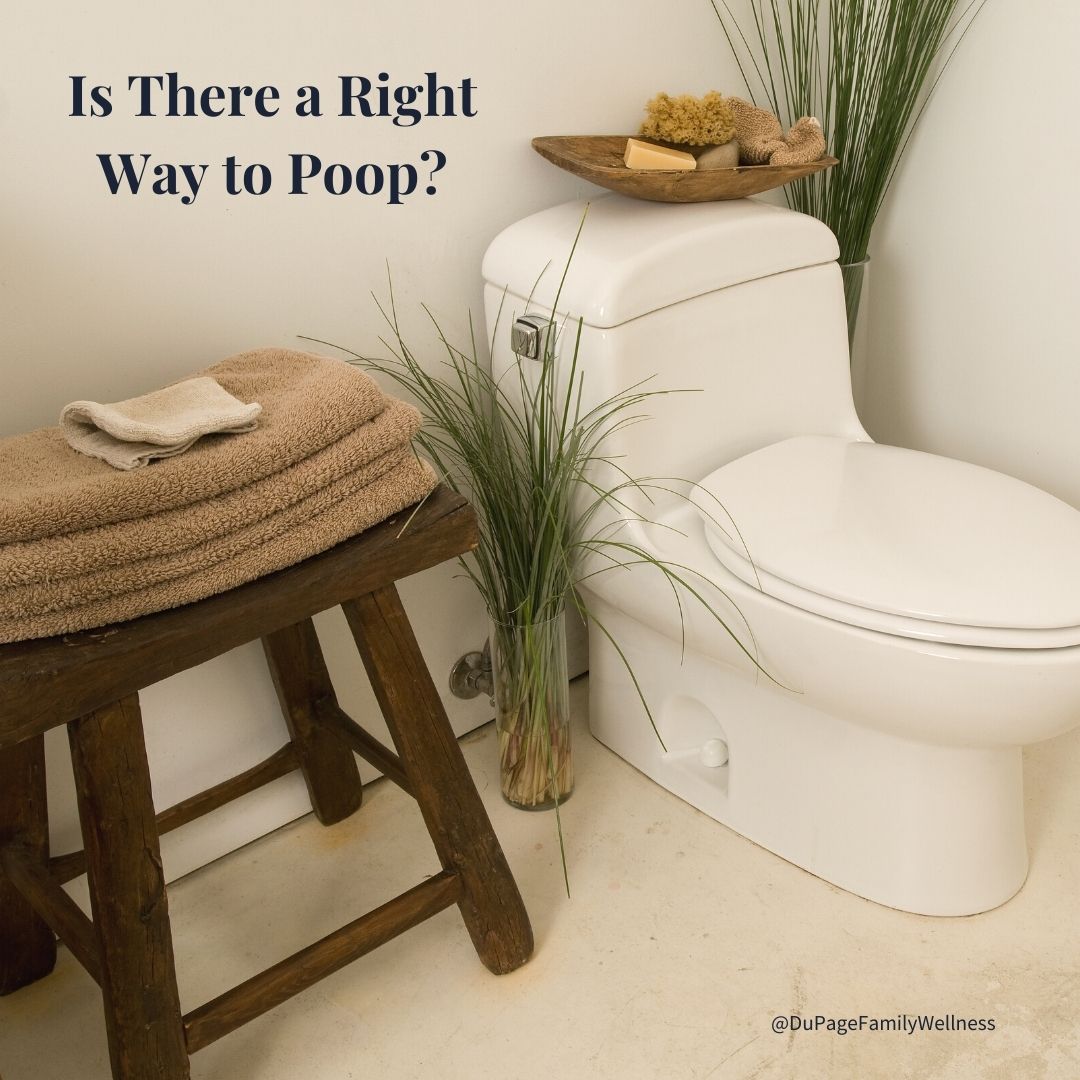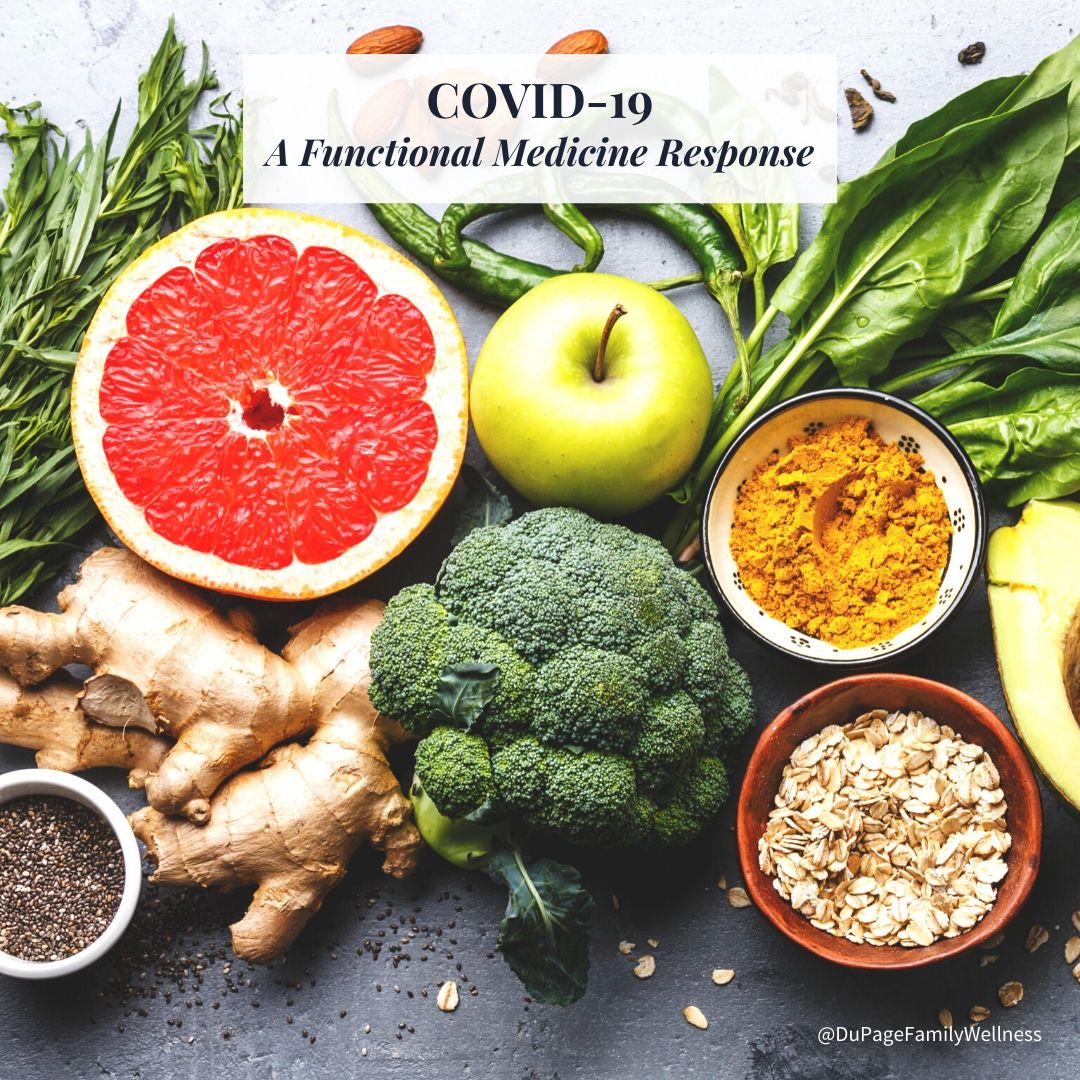 Our digestive health is crucial to the overall health of our body! If we want to know how our digestion is going, all we have to do is listen to our body.
Our digestive health is crucial to the overall health of our body! If we want to know how our digestion is going, all we have to do is listen to our body.
When our digestion is really bad, we will have all kinds of unpleasant symptoms. Stomach upset, gas, constipation, or diarrhea are symptoms that things are off. But even without these obvious signs, your digestion might be suffering.
Paying attention to our poop is a great way to tell how our digestion is doing. However, since we don’t often talk about our poop we may not know if what we are experiencing is a sign of health. It is important to shake the awkwardness of the conversation, so that we can listen to the messages our body is sending us.
Our gut health has such a great impact on our overall health, so we need to pay attention to what our poop is telling us!
The Basics
When we talk about poop, we will be looking at the form, frequency, color, and smell. Each of these aspects can give us insight into our digestive health.
When we consider the form of our poop, the Bristol Stool Chart is an extremely helpful tool. This chart was developed by Stephen Lewis and Ken Heaton at the Bristol Royal Infirmary. It is a diagnostic tool which classifies human feces into seven forms.
Take a moment to look at the chart and consider what you tend to experience!

Cabot Health, Bristol Stool Chart / CC BY-SA (https://creativecommons.org/licenses/by-sa/3.0)
An Ideal Poop
Ideally, we will have smooth soft poop that doesn’t fall apart when the toilet is flushed (a four on the Bristol Chart). The poop should be a chocolatey brown color like that of a Hersey bar. Bowel movements should not have a very strong odor or be difficult to wipe.
Since bowel movements are one of the body’s ways of eliminating toxins, it is important to have one to three bowel movements consistently each day. It should not hurt to poop, and you shouldn’t have to strain.
Trouble Signs
- Form - Having poop that is too soft could mean that you are simply not eating enough fiber, while poop that is too hard it may indicate that you need to drink more water.
- Color - Poop that is very dark could indicate bleeding in the GI tract, while poop that is too light may indicate malabsorption.
Read more ...
 Our digestive health is crucial to the overall health of our body! So, when it is off we must take notice. The body has many ways of telling us that healing is needed in this area. Some people feel bloated and gassy, while some struggle with diarrhea or constipation. Still others have stomach upset if they eat certain foods.
Our digestive health is crucial to the overall health of our body! So, when it is off we must take notice. The body has many ways of telling us that healing is needed in this area. Some people feel bloated and gassy, while some struggle with diarrhea or constipation. Still others have stomach upset if they eat certain foods.
While these symptoms are uncomfortable, they can be helpful messengers if we act upon what they are telling us. Since our gut health impacts our overall health so greatly, we should do all we can to support it. What we eat, how we move, and even how we poop will have an impact!
Let’s take a look at a trendy health practice that is based on ancient practice to discover the most natural way to poop!
Who Squats?
For centuries people did not have chair style toilets. Until the 1800’s, only the very wealthy in a community had this luxury. And even today many cultures around the world still squat to poop. In fact, it is estimated that over a billion people around the world squat when they go to the bathroom!
Why Squat?
Many people say that squatting is the most natural way to poop, putting the body in the right position to strain less while eliminating waste more thoroughly. Let’s take a look at biology to see why.
The puborectalis muscle works like a sling, looping around the rectum and closing it off from the anal canal. While sitting, the bend between the rectum and the anus is still there. Squatting relaxes this muscle getting rid of this bend. This straighter pathway allows everything to flow better, helping to prevent constipation and strain on the gut.
A study in Japan, using x-rays with contrast, found that pooping in a squatting position does actually make elimination easier. It has been clinically proven to eliminate strain by 91%, increase emptiness by 85%, and decrease time spent by 71%.
A Modern Solution
The Squatty Potty is a modern toilet stool that allows you to get in a squatted position while sitting on the toilet. It was created by a family simply trying to help a member of their family who was dealing with constipation.
In addition to having a great product design, the Squatty Potty is known for their hysterical (but educational) commercials…
Read more ...
 We grew up being told that if we eat too much we will gain weight. While this statement isn’t totally incorrect, the truth is much more complex.
We grew up being told that if we eat too much we will gain weight. While this statement isn’t totally incorrect, the truth is much more complex.
When we take a shallow look at this issue, it can easily lead to judgement and blame. For those who struggle to lose weight, this simplistic way of thinking can result in a lot of shame.
Investigative science, health journalist, and author Gary Taubes says, “We don’t gain weight because we’re eating more. We’re eating more because we’re gaining weight.”
Let’s take a look at what he meant!
The Cycle
Gaining body fat has a profound impact on what is happening within our bodies. Excess fat sets our hormones up to trigger us to want to eat more. By increasing the levels of ghrelin, the “hunger hormone”, body fat is actually controlling our hunger cues.
In addition, excess fat causes inflammation within the system. This not only impacts how we feel physically, it also sets off a cycle that ultimately disconnects us from making good decisions. As inflammation increases, it drastically impacts the quality of our sleep, which leads us to impulsivity - especially in what we eat.
According to David Perlmutter author of Brain Wash, “people who chronically don’t sleep well will consume, on average, approximately 380 calories more each day, without a similar increase in energy expenditure.” These extra calories can result in about a pound of fat each week. He continues to explain that research has shown a “profound increased desire for calorie-dense, non-nutritious foods after even one night of poor sleep.”
So, gaining weight leads to low quality sleep, which leads us to more gaining weight, which leads us to lower quality sleep, which leads us to…
Breaking the Cycle
In Brain Wash, Perlmutter describes the concept of off-ramps, which are ways to disengage from these negative cycles. These off-ramps, designed to give us back control, include things such as prioritizing sleep, mindfulness, and connection.
When we understand the way we have gotten caught in a cycle, we have the ability to choose to make different decisions. As we make these changes we gain more control, leading to more good decisions. We lose the negative cycle, exchanging it for a positive one. Eventually, making good choices actually becomes easier.
If you are interested in learning more about these dynamics, you may enjoy reading Brain Wash or listening to Chris Kresser’s interview with David Perlmutter.
What cycles are you caught in today? What changes could you make that would get you on a positive cycle of making good choices?
Dr. Jamie
 This is a quick reminder to schedule your appointment now if you would like to be adjusted before my maternity leave!
This is a quick reminder to schedule your appointment now if you would like to be adjusted before my maternity leave!
Maternity Leave Expectations
As you know, Jared and I will be welcoming baby #3 into the world soon. If all goes as expected, I will begin my maternity leave August 1st and plan to take a few weeks off.
I will be referring patients to a couple local chiropractors that I know and trust for any care they may need while I am gone. We will be sending an email with more information at the end of the month.
I look forward to seeing you when I get back!
Just for Fun
In the meantime, I thought you may enjoy a few thoughts from the girls (and Jared)!

Piper may not be sure what to expect, but she's
going to make a great big sister! She is looking
forward to doing "rock rock baby" with her baby
sister. (You may know "rock rock baby" as singing
"rock-a-bye baby.")

Harper says she is excited about having a new
little sister who will "probably have the same color
hair as me and Piper... then we can get the tiny
baby outfits that matches me and Piper so we can
all dress the same."

Jared is excited about "having three different
people to wake me up in the middle of the night!"
Read more ...
 As our nation continues to battle the Covid and the effects of the shut down, many people are looking to get healthy and improve their immune system. These people want to do all they can to decrease their chances of getting the virus, or minimize the severity if they do contract it.
As our nation continues to battle the Covid and the effects of the shut down, many people are looking to get healthy and improve their immune system. These people want to do all they can to decrease their chances of getting the virus, or minimize the severity if they do contract it.
Functional medicine is focused on creating health within the body. It both approves of these efforts, and is able to provide some clear direction to support the immune system through basic lifestyle changes.
In a recent article, “The Functional Medicine Approach to COVID-19: Nutrition and Lifestyle Practices for Strengthening Host Defense” authors Hanaway and Minich explore many things we can do to support our immune system!
Health and Covid-19
According to Minich and Hanaway, “The developing symptoms of COVID-19, as well as the progression of illness and fatality, are clearly a function of the overall health status of the individual. Complex, chronic diseases such as obesity, hypertension, and diabetes are directly correlated with risk of disease severity and mortality.”
Recognizing this correlation between our lifestyle and our risk is an important step towards change. When we know better, we can do better! Embracing some of these lifestyle changes will be challenging to do, but a strong understanding of the science can give us the motivation to follow through.
So, let’s look at these lifestyle interventions that include nutrition, sleep, exercise, stress reduction, and connection.
Nutritional Choices
The foods we eat have an incredible impact on our bodies ability to maintain health. Research has shown that our gut health directly impacts our immune system and overall health.
Each meal we eat influences our system. When we choose healthy foods we supply nutrients to the body and support healthy immune function. On the other hand, when we choose poorly it disrupts the system.
Read more ...
 Our digestive health is crucial to the overall health of our body! If we want to know how our digestion is going, all we have to do is listen to our body.
Our digestive health is crucial to the overall health of our body! If we want to know how our digestion is going, all we have to do is listen to our body. 

 Our digestive health is crucial to the overall health of our body! So, when it is off we must take notice. The body has many ways of telling us that healing is needed in this area. Some people feel bloated and gassy, while some struggle with diarrhea or constipation. Still others have stomach upset if they eat certain foods.
Our digestive health is crucial to the overall health of our body! So, when it is off we must take notice. The body has many ways of telling us that healing is needed in this area. Some people feel bloated and gassy, while some struggle with diarrhea or constipation. Still others have stomach upset if they eat certain foods.  We grew up being told that if we eat too much we will gain weight. While this statement isn’t totally incorrect, the truth is much more complex.
We grew up being told that if we eat too much we will gain weight. While this statement isn’t totally incorrect, the truth is much more complex.  This is a quick reminder to schedule your appointment now if you would like to be adjusted before my maternity leave!
This is a quick reminder to schedule your appointment now if you would like to be adjusted before my maternity leave!


 As our nation continues to battle the Covid and the effects of the shut down, many people are looking to get healthy and improve their immune system. These people want to do all they can to decrease their chances of getting the virus, or minimize the severity if they do contract it.
As our nation continues to battle the Covid and the effects of the shut down, many people are looking to get healthy and improve their immune system. These people want to do all they can to decrease their chances of getting the virus, or minimize the severity if they do contract it.